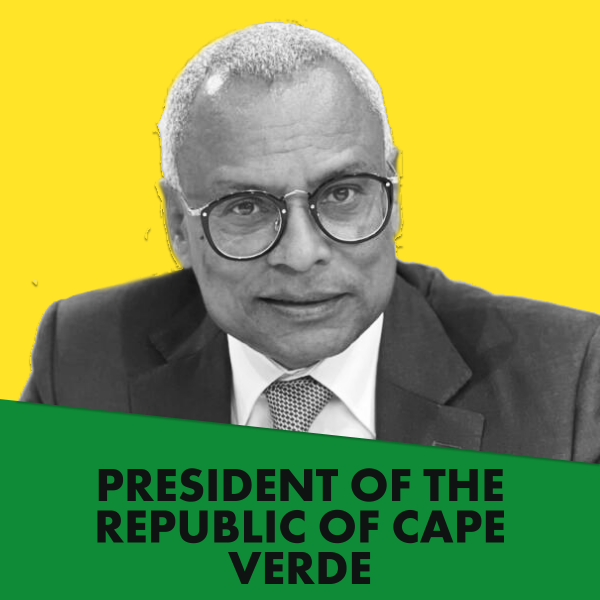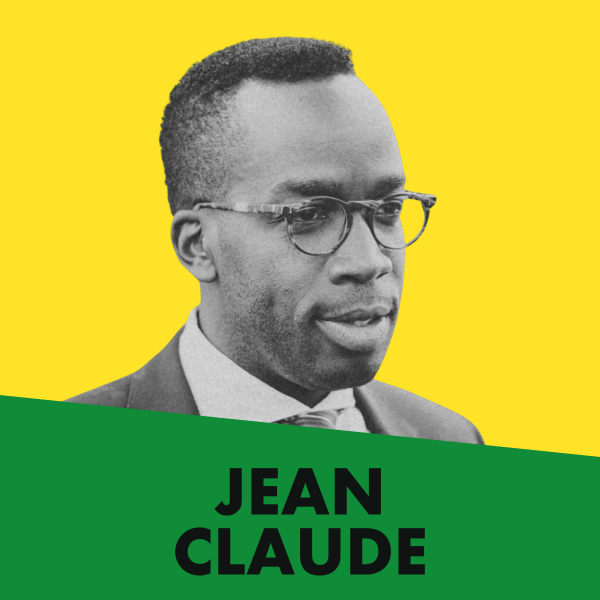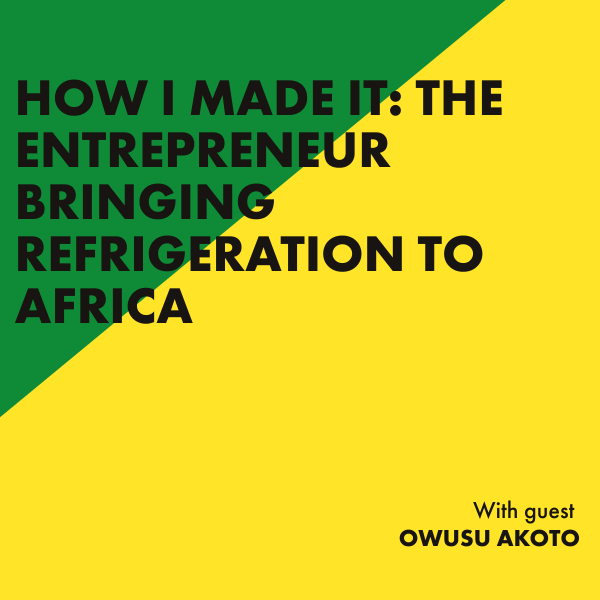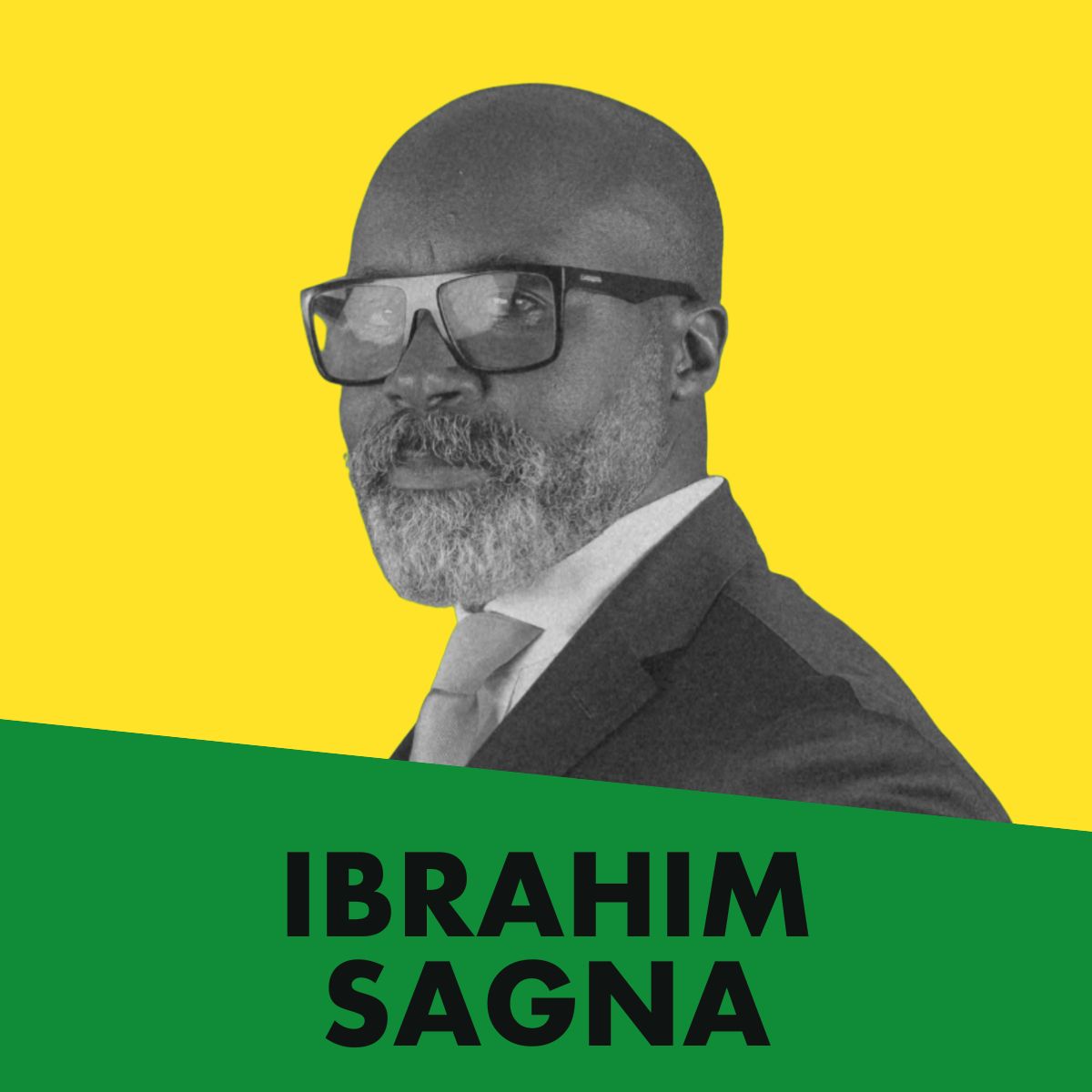Claude: Welcome to Limitless Africa. For this episode, we’re broadcasting from the Presidential Palace of the Republic of Cabo Verde. We’ll be speaking with the President José Maria Neves.
But it won’t be me interviewing him… Instead six young people will be asking the questions. And they want to know what the most powerful man in the country is doing for young people like them. They matter and his answers matter: In some ways Cape Verde is representative of many of the issues that face African countries, nearly half of the population are under 25 years old and the brain drain is a real problem, many young Cape Verdeans dream of moving away from their homeland.
Our journalist and Lusophone presenter Lourdes Fortes chaired the discussion. I’ll hand over to her now.
Lourdes: My name is Lourdes Fortes, we are broadcasting from the Presidency of the Republic of Cabo Verde and I’m here with six young people to look at what we can do for the young people in the future. Mr. President of the Republic, what can we do today for the young people of the future?
President: Well, essentially investing in education. I think the important thing, as I said, is to make an effort to be intelligent and create opportunities. “Personally, I was an unlikely prime minister, an unlikely president, but I managed to fulfill all my dreams, all of them.”
Lourdes: Let’s move on to our first question.
Patricia: My name is Patrícia Lopes, I’m 23 years old and I’m from the island of Santo Antão. This year I will finish my degree in Management.
Thinking of the unemployment rate and the problems associated with it. I would like to know this: what is Cape Verde doing to cooperate more with other countries to promote the mobility of young people for study and work?
President:
There is already a lot of mobility. Cape Verdeans are trained all over the world. There are always Cape Verdeans in the most varied disciplines. Sometimes with scholarships, sometimes through training and job opportunities. I consider this to be a great asset. What we lack in Cape Verde is a capacity to absorb all this trained labor.
We are a small state. We have 500 thousand inhabitants. It is basically a micro-state. So, the level of competitiveness of an economy the size of Cape Verde is very low. And this creates difficulties for us in sizing our job market and, consequently, in absorption. But there are other areas where there is not even the capacity to create jobs. And that’s because they are either underdeveloped sectors or sectors that are not viable in a small economy like the Cape Verdean one.
Right now, we have to create the structures. And not necessarily just for the Cape Verdean market. These structures must also be flexible and scalable. And, therefore, our training has to improve in terms of quality so that we can compete in this global market.
So, in Cape Verde, at this moment, we have to expand language teaching, particularly English. We have to substantially improve the quality of our education system. So that a nurse trained in Cape Verde is able to work in London, in Montreal, in Washington, in Lisbon, in any part of the world. So that a young person trained in Cape Verde can be competitive wherever in the world they are.
Lourdes: I remind you that we are broadcasting today from the presidency of the Republic, live for Limitless Africa.
I’m going to hand the mic over Jusseila Pereira, a medical student and artist.
Jusseila: My question is on the same topic. It’s about the brain drain in Cape Verde.
It has had an impact on young people. I speak mainly for students in my course, Medicine, who when they’ve finished are left without a job and without answers. It means qualified professionals, motivated by factors such as limited work opportunities, low wages and lack of research infrastructure, leave the country in search of better employment and income. This deprives the country of essential human capital and specialists in areas crucial to Cape Verde’s socioeconomic progress.
So what initiatives can be adopted to fight the brain drain? How can we invest in the training and retention of talent in the country?
President: You’ve said it all! (small laugh of pride to himself for her well-researched question)
President: This effectively is a great tragedy, this brain-drain of the country’s young professionals. And I said, this has to do with the size of our economy, the low competitiveness of our economy and our inability to absorb workers. So, how are we going to resolve this issue? It is only by accelerating the growth rate of our economy. And I insist on it. Young Cape Verdeans need to think about this, we cannot continue to do more of the same, we cannot continue to do the same things. The country does not need to be managed, to just be managed to maintain performance. The country needs to be radically transformed. In other words, we need sufficiently innovative policies to transform Cape Verde into a modern, competitive country and to be able to generate many more opportunities. Are there possibilities to do this? Yes there are huge opportunities here. We need to discover these opportunities and be much bolder in Cape Verde.
Lourdes: We have a question from Roberto dos Santos. Roberto is Cape-Verdean. He emigrated to Portugal and works for the national TV network RTP Africa.
Roberto: What needs to be done to make the continent more attractive? To make young people want to stay, and not to imagine that the grass is greener elsewhere?
President: We all have to take on another role, especially the youth of Cabo Verde. For the country to take the leap we cannot just rely on the good will of those who govern.
And I think a civic awakening is what we need here in Cape Verde.
Lourdes: Do you think the lack of dialogue and consensus-building ends up making young people less interested in politics and development?
President: Not only that, but it also shapes it a lot. For example, only yesterday I was talking to young people at the University of Santiago. There is a Brazilian political scientist, Bolivar Lamounier, who says that the costs of
political participation are very high.
He says that a man’s main tool is his pocket. Here in Cape Verde, few people debate. You can argue, but there is nothing more beautiful than a discussion full of elegance, politeness, and irony.
I can make a scathing criticism, but do it with style, with wisdom.. That’s what we need here in Cape Verde. When we see certain debates here, what happens? These debates also reveal the political immaturity of some of the different political actors in Cape Verde. This behaviour keeps young people away from politics, it keeps women away from politics, etc.
Lourdes: Elisângela Teixeira, from Santa Cruz, it’s your turn to ask the President of the Republic a question.
Elisângela: I am a student doing my 4th year of International Relations & Diplomacy and in those 4 years I have only heard about politics, politics, politics…
Do you think it’s because young people distrust our politicians that they end up losing motivation?
What kind of efforts, do you think, can be made to help involve young people more in the Democratic process?
President: I took two subjects in the International Relations course. And, in fact, there is a lot of discussion about politics. We need to discuss ways of participating in political life. How can young people, be more involved in public discussion? How can we create channels to keep those who govern accountalbe? Right? I think it is in this space that the University can transform itself and the President of the Republic can be the catalyst for this debate here in Cape Verde.
Lourdes: Keila dos Anjos is 21, and in the third year of her journalism course. Over to you, Keila
Keila: I’m Keila. I’ll take advantage of what you pointed out to ask another question… if you think we are training young people who are apathetic and self-obsessed when it comes to the development of the country and common life in society?
President: We have to ask where we are failing. Where is democracy failing? Political parties have long ceased to perform their pedagogical function of training for citizenship. They end up competing for power. So, these are questions that we need to reflect on, discuss, to understand the causes and to discover new ways to rebuild healthier societies.
Keila: Unfortunately, Cape Verde has experienced a 6% increase in the crime rate. You had said that you brought together the police within Cape Verde. Was this joining of police forces an assertive attitude? I want to raise another question: Shouldn’t there be more protective measures in relation to crime, open conversations with young people and also more activity, especially by police, in areas where there is this crime rate? Thank you.
President: I agree on one issue. I think there is a need for more debate and more preventative measures. But the issue of crime is not just a problem for the police. It has to do with a bunch of causes. It has to do with families, with schools, with urban planning. And when we live in ghettos. When we live on top of each other. And here equilibrium is very precarious. There is no one cause. I think that the creation of the National Police greatly improved the functioning of the police. I spoke about the need for more tolerance. More tolerance is needed. What does tolerance mean? Tolerance means to accept difference. Accept the other. These issues are not easy. They are very complex because they do not derive from a single cause. They have a multiplicity of causes.
Lourdes: Ricardo Barreto is a 26 year old architect. Roberto, it’s your turn to ask the President of the Republic a question.
Ricardo: Mr. President, the mental health of young Cape Verdeans needs more attention . Look at the number of suicide cases affecting young people…
President: We are in a small country, the equilibrium is precarious. We have to be very resilient to avoid falling into depression. We have to be very strong. But I think that, globally, much more attention needs to be paid to mental health, here in Cape Verde. We need to invest more in schools, at all levels, and also have a healthier society. With less enmity, with less hate speech.
Lourdes: Thank you to all. I appreciate everyone’s presence for a special Limitless Africa episode coming to you from the presidency of the Republic of Cabo Verde.









